Karen Prudente was listening to a sermon by a United Methodist minister in a town south of Manila when she had an “Aha!” moment.
The minister was talking about how the church needed to turn the world upside down. It then dawned on Prudente, a lifelong Methodist, that it was time for the church in the Global South to have a bigger say in how things are run. A Filipino American who runs a nonprofit social-service organization in Manila, the capital of the Philippines, Prudente gathered a group of like-minded United Methodists abroad and got to work.
The group she gathered, called the Christmas Covenant, drafted a series of documents that would restructure the United Methodist Church worldwide to give overseas conferences greater equity and allow them to tailor church life to their own customs and traditions.
“Right now the United States is considered the mother church and all the central conferences are its babies,” said Prudente, speaking of the seven overseas conferences known as central conferences. “By shifting it, the U.S. would be part of the table as an equal. But the U.S. would not be overseeing it. We would all be in it together.”
This radical realignment of the estimated 11.5 million-member worldwide denomination is one of the major pieces of legislation coming before the General Conference, the quadrennial meeting of the United Methodist Church, in Charlotte, North Carolina, in April.
Your tax-deductible gift helps our journalists report the truth and hold Christian leaders and organizations accountable. Give a gift of $30 or more to The Roys Report this month, and you will receive a copy of “Hurt and Healed by the Church” by Ryan George. To donate, haga clic aquí.

After a bruising five years, in which some 7,600 U.S.-based churches voted to split off from the denomination and go their own way — a loss accounting for 25% of all U.S. congregations — Methodists are meeting again and they have a packed agenda.
Regionalization tops the list. Eight pieces of legislation under the regionalization plan would reshape the denomination, creating four conferences — Africa, Europe, the Philippines and the United States — each equal in stature and able to customize part of the denomination’s rulebook, the Book of Discipline, to fit local needs.
The plan is in some ways a concession to the success of the Protestant denomination’s global missionary efforts. Born of an 18th-century movement begun by the British-born John and Charles Wesley, the Methodist church through its various schisms and realignments grew to be the second-largest Protestant denomination in the U.S., and an expanding presence around the world.
Today, United Methodists outside the U.S. form a larger share of United Methodists globally. There are about 4.5 million United Methodists in the U.S., and close to 7 million outside the U.S. (U.S. disaffiliations over the last five years are estimado to account for 1.5 million members.)

The recognition that the U.S. is no longer as mighty as it once was is driving regionalization.
“This is a way of putting every region on the same kind of standing, so that one culture does not dominate other cultures,” said the Rev. Dee Stickley-Miner, executive director of missional engagement for the General Board of Global Ministries who has worked on the plans alongside non-U.S.-based church leaders.
In this sense, regionalization has been framed as a decolonization undertaking.
But regionalization is also an acknowledgment that cultural and theological differences are driving Methodists apart, especially around sexuality.
“Regionalization is seen as the only way the church can stay together,” said Lovett Weems, director of the Lewis Center for Church Leadership at Wesley Theological Seminary.
The regionalization legislation, if adopted, would allow each regional conference to set its own qualifications for ordaining clergy and lay leaders; publish its own hymnal and rituals, including rites for marriage; and establish its own judicial courts. A new Book of Discipline would have one section that could be revised and tailored for each of the four regional conferences.
The idea is not new. Methodists have tried to regionalize their operations for years. The last attempt, in 2008, passed in the General Conference but failed to receive two-thirds ratification among individual conferences across the world, as required for constitutional amendments.
Unlike the 2008 regionalization plan, the new plan comes from outside the U.S. Beginning in late 2019, the Christmas Covenant, by then consisting of Asian, African and European Methodists, met monthly and worked with two U.S.-based denominational agencies on drafting the legislation. Their work has been translated into Portuguese, French and Swahili.
That does not mean all conferences outside the U.S. favor passing the regionalization plan.
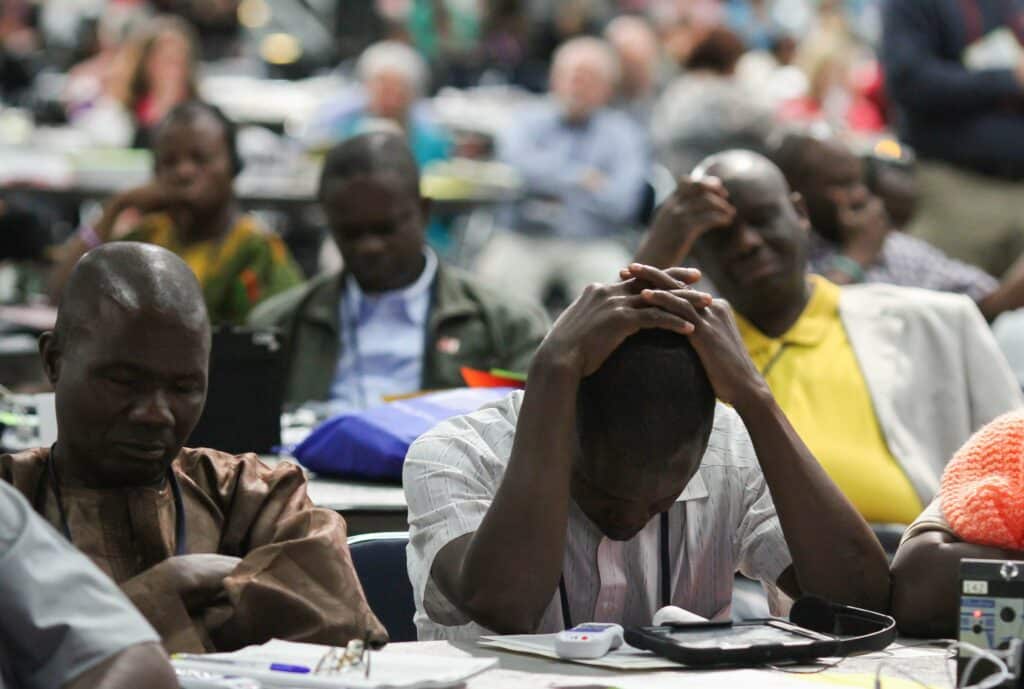
Some African Methodists are wary. They are particularly worried that if the plan passes, U.S. Methodists may then decide to change rules on ordination and marriage of LGBTQ Methodists. Though African conferences would be allowed to keep traditional rules on sexuality, they don’t want to be tarred by association.
“This is deception; for by doing so, we would pretend to ourselves to be one denomination, yet preach different gospels,” escribió Jerry P. Kulah, vice president of the School of Graduate and Professional Studies at United Methodist University in Monrovia, Liberia.
The Wesleyan Covenant Association, a network of theologically conservative Methodist churches based in the United States, is also opposed to the regionalization plan for the same reasons. It wants to allow African churches and whole conferences to disaffiliate en masse just as U.S. churches have been allowed to do over the past five years, a process that concluded on Dec. 31.

Advocates for regionalization insist the plan has nothing to do with changes to LGBTQ rights. And even if regionalization passed, there’s no guarantee that LGBTQ-affirming legislation on marriage and ordination would pass in the U.S. region.
“If you read the legislation there’s not one word about LGBTQ people,” said Prudente, the Filipino American. “But that’s how the other side is confusing people.”
For Betty Musau, communications director for the North Katanga United Methodist area in Congo, regionalization is about prizing and prioritizing local customs and traditions.
She gives the example of Holy Communion, the commemoration of the meal of bread and wine (or grape juice) instituted by Jesus. Around the world, the elements of the meal are always locally sourced. The same goes for the musical instruments used and the hymns used to pray.
Regionalization, she said, is just that.
“If an idea is new, that would be very difficult for you to incorporate it in what you’re doing. People at the grassroots level, they will not understand. But when you tell them that that’s what you’ve been doing, you just value what you’ve been doing. When we value our context, we value what we have.”
 Yonat Shimron es reportero nacional y editor senior de Religion News Service.
Yonat Shimron es reportero nacional y editor senior de Religion News Service.




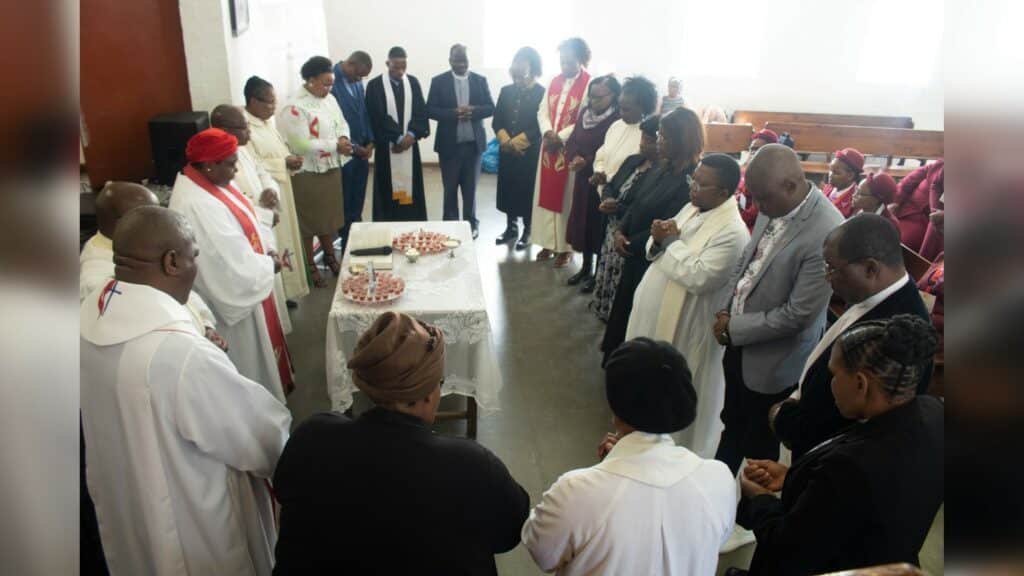
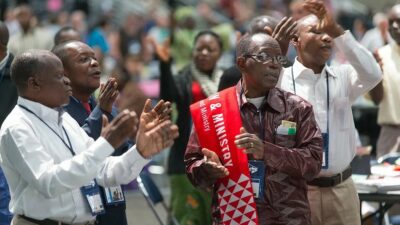




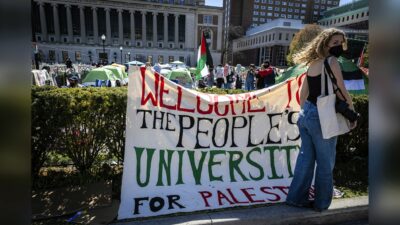


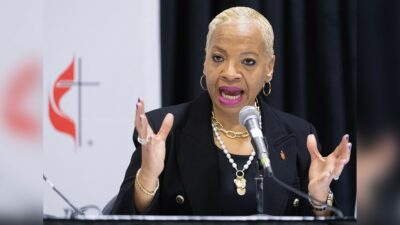






2 Respuestas
I am one of those that disaffiliated from the UMC a year ago after being a long-time member. As the article reads this was attempted once before but soundly defeated around the world because it needed to be approved by all. However, ALL, could see through the real action. It isn’t to De-Colonize, but to allow the UMC’s in the USA to liberalize their sexuality agenda without the rest of the world saying no. Imagine a franchise restaurant having different standards for its franchises. It would be chaos. The same is true with this attempt. This subject is difficult to write about in one short article. I encourage all readers to “see through it” for what it really is. In another four years Africa will have a majority over the USA on delegate numbers. This is the last attempt of the USA to get what they want but looking good by calling it de-colonization.
I am a life-long United Methodist, but I no longer have a church family. By a very narrow margin my church voted to disaffiliate from the United Methodist Church. In my opinion this decision seemed to be based on money and fear. Our church vision used to be “Open doors, Open hearts, Open minds”.